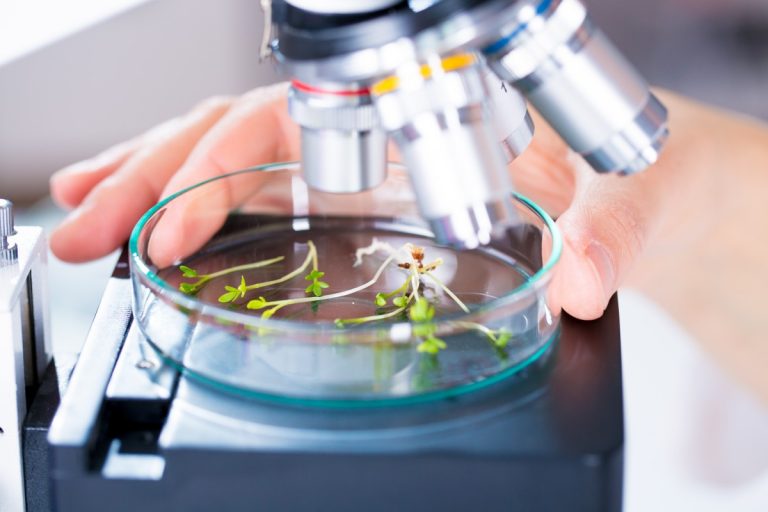
‘Graduate prospects’: words that strike fear in the majority of students. When choosing where to study, graduation will seem like it’s a lifetime away – but it comes around way quicker than you’d think… and then, you’re thrust into the adult world, fresh-faced and keen to make your mark on your respective field.
So naturally you hope there’ll be a promising industry to enter. Luckily, for agriculture, environment, and sustainability students, the demand for qualified graduates is steadily increasing.
According to the United States Department of Agriculture, there are an estimated 57,900 annual openings for graduates with bachelor’s or higher degrees in food, agriculture, renewable natural resources, or the environment between now and 2020. And yet, only 35,000 graduates are expected to leave college to specialize in these areas.
Agriculture is needed to preserve the Earth’s future. It feeds the world, protects the environment, and sustains both the people and our planet. With the expanding population, the UN strategy for Sustainable Development has predicted that by 2030, we will need to “build the equivalent of a city of one million people in developing countries, every five days!”
We need the resources to support these people. Agriculture has been at the heart of our survival as a species since we began farming. The world has changed a lot since then, much of it for the better – but not for our environment. We can’t keep producing food in the same ways we have before, with rising issues like climate change, volatility, and shifting demands for nutrition to contend with worldwide.
The sector is developing as fast as its people. The demand for graduates specializing in the field is ever-increasing. The next generation need to take control to sustain our planet.
So, you’ve decided to study in the field of agriculture, environment, and sustainability? We’ve compiled a list of the five best places to study in the field in the US…
COLLEGE OF AGRICULTURE AND APPLIED SCIENCES, UTAH STATE UNIVERSITY

The College of Agriculture and Applied Sciences at Utah State University was ranked as the number one college in the U.S. for agriculture majors by Campus Explorer. The college offers more than 70 undergraduate and graduate degrees across a broad range of disciplines including traditional agriculture, economics, nutrition, aviation, science and more.
Students in the College of Agriculture and Applied Sciences work with award winning faculty in state-of-the-art facilities for a world-class learning experience. The college enrolls 2,600 students and provides hands-on research opportunities to solve real-world issues. Students have the opportunity to present and publish research even as undergraduates.
This year the College of Agriculture and Applied Sciences awarded 394 scholarships to students. Utah State University is very affordable and ranked #5 in the U.S. for lowest tuition by Forbes.
Utah State University is located in the beautiful mountain valley of Logan, Utah, just 75 minutes from the Salt Lake International Airport. Logan has been recognized as the #1 safest metro city in the western U.S. by Law Street and as the #1 most impressive historic college campus in the U.S. by Campus Values Online. The community is very student-friendly and there are many outdoor opportunities to pursue year round.
The College of Agriculture and Applied Sciences at Utah State University provides an affordable, safe and world-class educational experience to students.
COLLEGE OF AGRICULTURE AND NATURAL RESOURCES (ANR), MICHIGAN STATE UNIVERSITY (MSU)
This college provide a stimulating environment that challenges students to use their knowledge in the real world, not just on campus, in Michigan or even the US, but around the world.
The Michigan State University Extension pools together the knowledge, resources, and research of MSU students and uses it to directly improve the lives of individuals, communities, and businesses.
The university also runs AgBioResearch, which combines research from seven MSU colleges, including Agriculture and Natural Resources, and over 300 scientists. Here, scientific expertise merge with practical experience in the hopes of generating economic prosperity, sustaining natural resources, and enhancing quality of life for all.
The Center for Global Connections in Food, Agriculture and Natural Resources works to enhance global networks which in turn helps advance ANR. The college also boasts a one-of-a-kind fellowship program, the Academy for Global Engagement (AGE) to advance the faculty. As well as this, the college has collaborated with the College of Engineering to create the year-long intensive training that will help both the individuals involved, and the Faculty at large.

DALE BUMPERS COLLEGE OF AGRICULTURAL AND LIFE SCIENCES, UNIVERSITY OF ARKANSAS
Students who wish to build successful careers in food, family and the environment will benefit from a course at Bumpers. What they lack in size – there were 2,200 students enrolled in the fall of 2017 – they make up for in heart. Bumpers College is renowned for its family-like atmosphere of warmth and support.
The College offerd a range of programs with 13 majors and 22 minors throughout 9 departments. The learning at Bumpers isn’t just classroom based; hands-on labs, professional development, leadership development, and internships are also used to advance knowledge. Annually, over $650,000 is awarded to students through scholarships. Applicants have a pretty good chance too, with a 72 percent rate for awards.
Bumpers produce graduates who are ethically-responsible and environmentally-conscious, as well as intellectual and technical. Students here are pruned to become leaders in their field.
COLLEGE OF FOOD, AGRICULTURAL AND ENVIRONMENTAL SCIENCES (CFAES), OHIO STATE UNIVERSITY
Ohio State ATI is a national leader in awarding associate degrees in agricultural and related sciences. Agriculture is Ohio’s number one industry, so it’s natural that Ohio State University prioritize their research into the sector.
Ohio State boast an entire research centre dedicated to agriculture, the Ohio Agricultural Research and Development Centre (OARDC). Researchers at OARDC aim to help farmers, growers, and producers maximize work. They have research centres in locations all over the state, including a campus in Wooster. The centre has over 400 research projects underway at any one time, focusing on current global issues within agriculture.
The Ohio State University Extension, the world’s largest non-formal education system, has offices in every county within the state. It works to improve lives, businesses, and communities through its four program areas: 4-H Youth Development, Agriculture and Natural Resources, Community Development, and Family and Consumer Sciences.
There are a range of disciplines to choose from in the college, so all interests in the sector can be explored.
COLLEGE OF AGRICULTURAL AND LIFE SCIENCES (CALS), UNIVERSITY OF FLORIDA (UoF)

CALS work diligently to develop a strong knowledgebase in agriculture, human and natural resources, and the life sciences. But, for CALS students and staff, simply gaining knowledge is never enough -making their research accessible is just as important.
The college is dedicated to functioning globally. They work with the Peace Corps, which has been donned “one of the most successful programs in the US for over 50 years”. It gives students and alumni the opportunity to travel all over the world, and UoF ranks among the highest in recruits – especially those with a background in agriculture and natural resources.
CALS boasts several study abroad programs, specifically-designed for students in agriculture, life sciences, forestry, ecology, and other related majors. There are also international internship opportunities.
CALS hopes to propel students into the real world so they can develop their careers whilst improving the lives of others. The programs at CALS prepare students to tackle issues within the industry.
*Some of the institutions featured in this article are commercial partners of Study International
Liked this? Then you’ll love these…
Cultivating Futures: Global Leaders in Agriculture & Forestry
Living Laboratories: 5 APAC leaders of environmental studies







